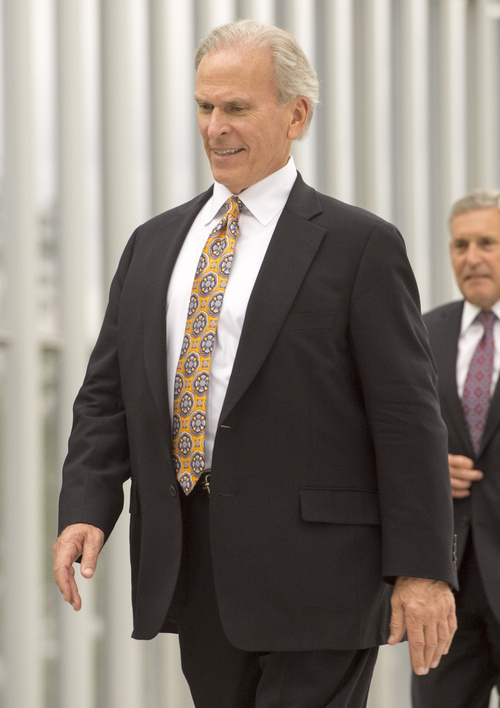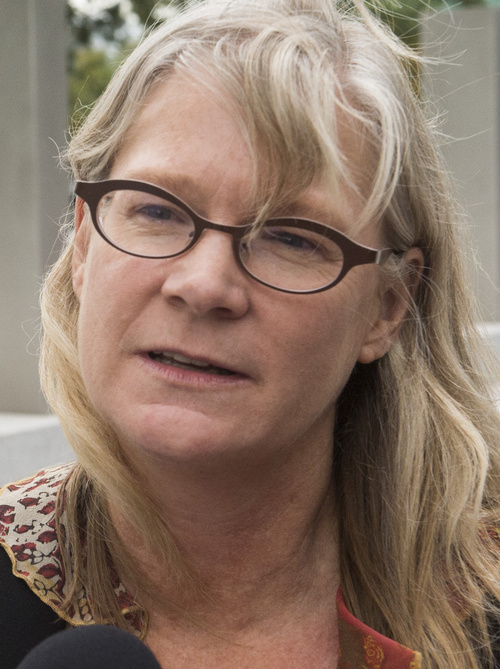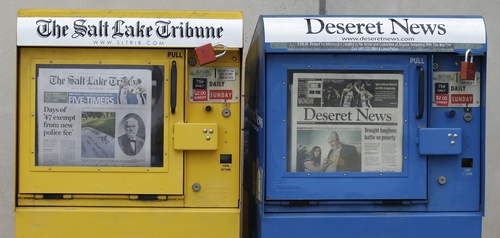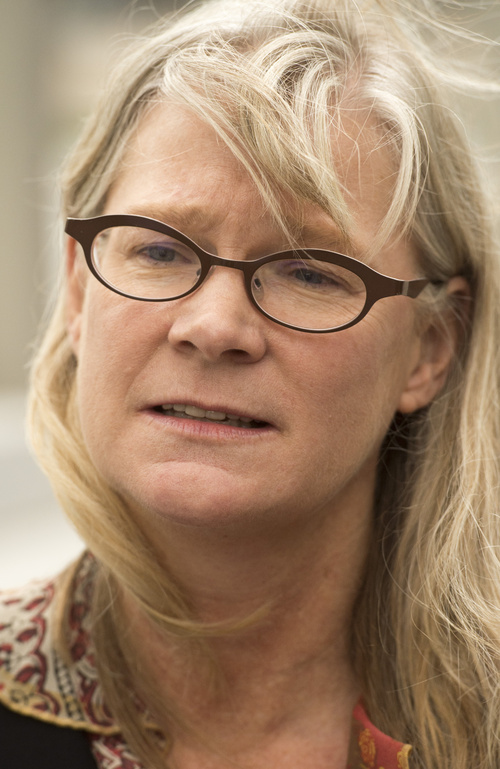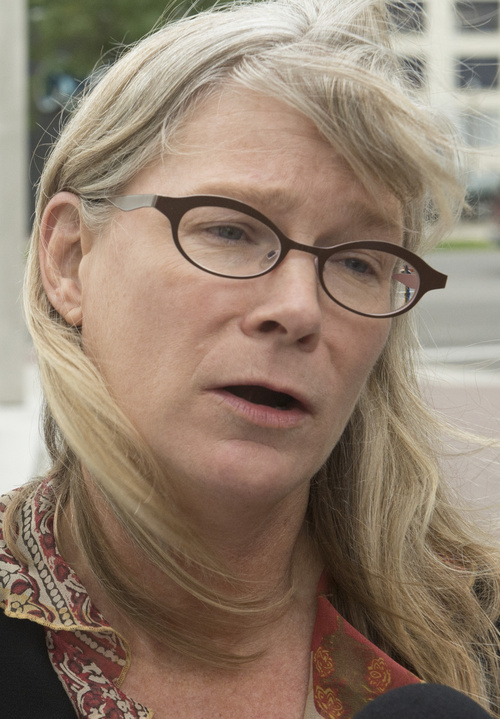This is an archived article that was published on sltrib.com in 2014, and information in the article may be outdated. It is provided only for personal research purposes and may not be reprinted.
A federal lawsuit seeking to undo recent business dealings between Utah's two largest newspapers will continue after a judge Monday rejected attempts to have it thrown out.
After nearly two hours of arguments from both sides, U.S. District Judge Clark Waddoups refused to dismiss the suit brought by a grass-roots group called Citizens for Two Voices.
The group of former Salt Lake Tribune employees and concerned Utahns hopes to dismantle changes to a 62-year-old business partnership between The Tribune and the LDS Church-owned Deseret News.
The revised deal cut The Tribune's share of profits from the partnership in half, which the grass-roots group argues has damaged its new-gathering operations and threatens to put it out of business.
The case now proceeds to an evidentiary stage likely to probe deeper into details of the newspapers' joint-operating agreement (JOA), parts of which owners of the two dailies have been reluctant to share.
"I'm glad the court is going to require the defendants to come forward with some information about this deal that has such an impact on the community,'' said Joan O'Brien, a former Tribune reporter and editor who leads the group.
"So far," she said, the News' top managers and The Tribune's owner, New York-based hedge fund Alden Global Capital, "have not given any justification or explanation of this deal that poses such a threat to The Tribune.''
Executives at the papers maintain the revised deal was crafted to shift The Tribune's business model away from its print legacy and improve its chances of surviving in a digital era.
The CEO for Digital First Media, which runs The Tribune and a chain of other U.S. newspapers on Alden's behalf, said he remained confident of winning the case.
"Once the facts are considered," John Paton said Monday, "we will prevail and the plaintiff's case will be exposed for the plain rumor and innuendo that it is."
The News' managers echoed those sentiments, calling the ruling "simply the next step in a normal judicial process."
The News and Paton also reiterated previous statements that DFM has no plans to close The Tribune. They also have said they consider both newspapers' voices vital to Salt Lake City and Utah.
Attorneys for the News and The Tribune's owner sought in July to have the lawsuit thrown out, arguing that details of their agreement amounted to a private business matter specifically shielded from challenge under federal law.
Richard Burbidge, attorney for the Tribune's owner, said the reworked JOA was intended to move away from print-based news publishing and steer Alden's $200 million investment in the paper toward a more digital-centric future.
The Tribune's owner is "confident of its business model," Burbidge said. And to give an outside party a say in those decisions "is improper."
The newspapers pushed their case with nine attorneys — from Utah, New York and Washington, D.C. — compared to two Salt Lake City-based lawyers representing the Citizens group.
While acknowledging the News' and hedge fund's arguments were"powerful," Waddoups said legal caution dictated that he not decide major issues at this early stage without more evidence.
O'Brien, who is the daughter of late Tribune Publisher Jerry O'Brien and is married to Tribune reporter Tom Harvey, said the group would seek to learn, among other facts, how much the News paid Digital First to secure its bigger profit share and wider control of joint operations.
The group's lawyer, Karra Porter, told Waddoups that sum was estimated at more than $15 million. The News' and Alden's refusal to disclose the exact figure, Porter said, fueled valid suspicions the deal might have run afoul of anti-monopoly laws.
The group also alleges the modified JOA violates U.S. antitrust laws partly because it gives the News, owned by The Church of Jesus Christ of Latter-day Saints, veto power over who might buy and own The Tribune.
Aside from the lawsuit, the JOA remains the subject of separate investigations by the U.S. Department of Justice and the Utah attorney general's office. Officials from both agencies attended Monday's hearing but declined to comment.
Shared operations between competing papers are allowed for non-news operations such as printing, advertising and distribution under the Newspaper Preservation Act. That 1970 federal law frees newspapers from key antitrust rules in certain business practices to support their survival.
As one of the oldest such partnerships in the country, Burbidge argued that The Tribune and News are able to freely revise their business accord without "second guessing" from courts or outside parties.
At one point Monday, Waddoups asked if that same argument would apply if the JOA had cut one of the partners' profit share to zero, instead of the pact's 70-30 split now favoring the News. Burbidge sidestepped the question as a hypothetical.
Under the latest JOA, The Tribune has laid off 27 employees and eliminated several print features, including its award-winning Faith section. The grass-roots group cites those changes as a symptom of "a downward spiral" triggered by the JOA revisions.
The News and DFM, meanwhile, argue the staff cuts are part of necessary cost-cutting to make The Tribune more efficient.
The JOA changes also moved control of the newspapers' shared advertising, printing and distribution company to the News and sold The Tribune's share of a printing facility in West Valley City to the News.
Negotiated by Paton and News CEO Clark Gilbert, the deal came to light after reporters at The Tribune received an anonymous handwritten tip in the mail.
Twitter: @Tony_Semerad


